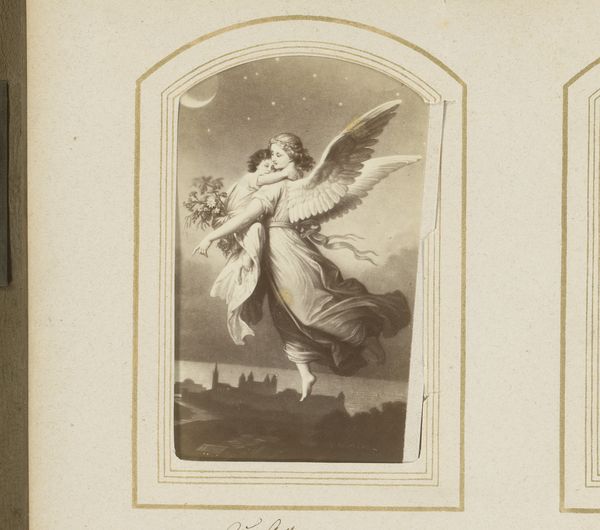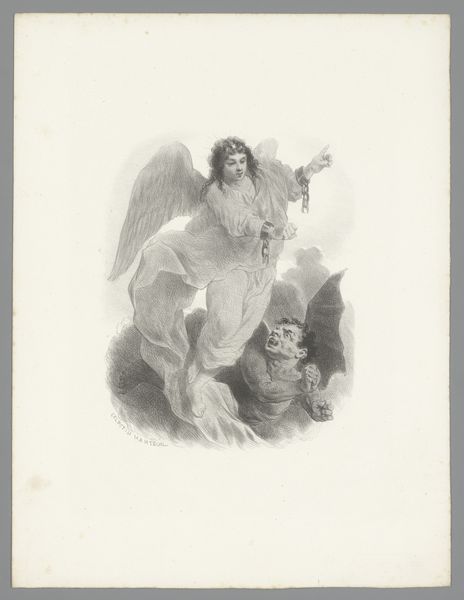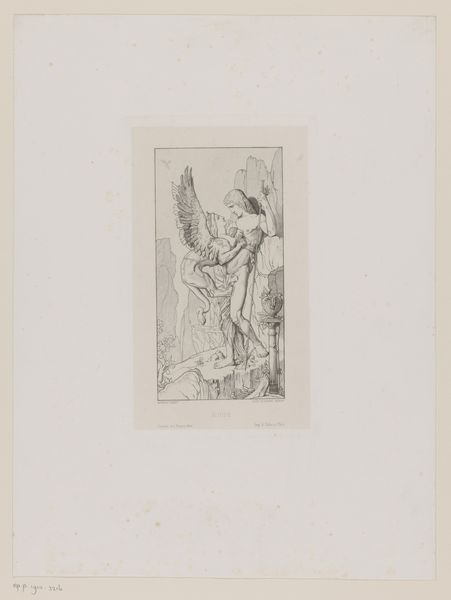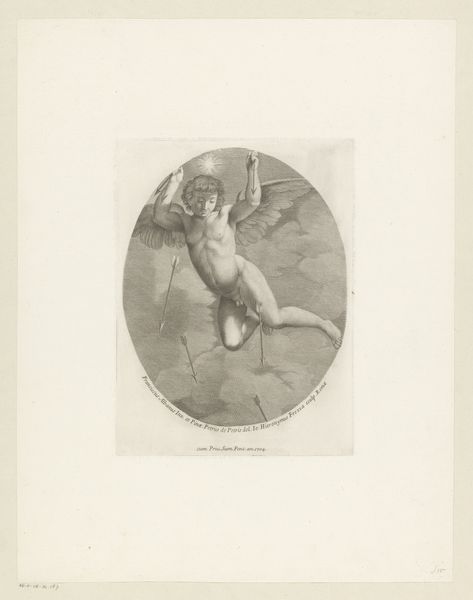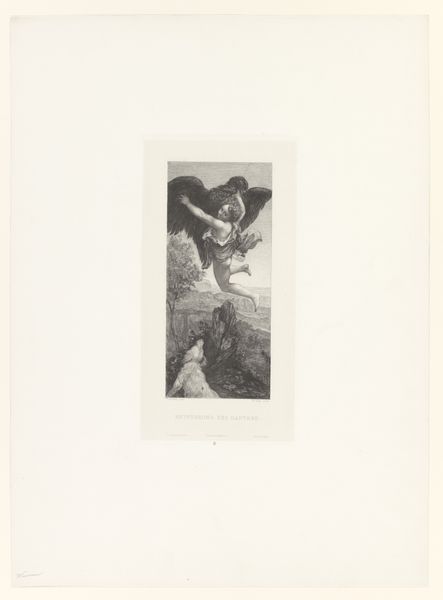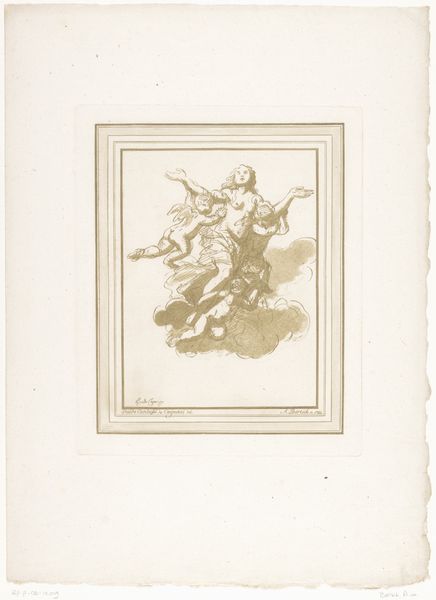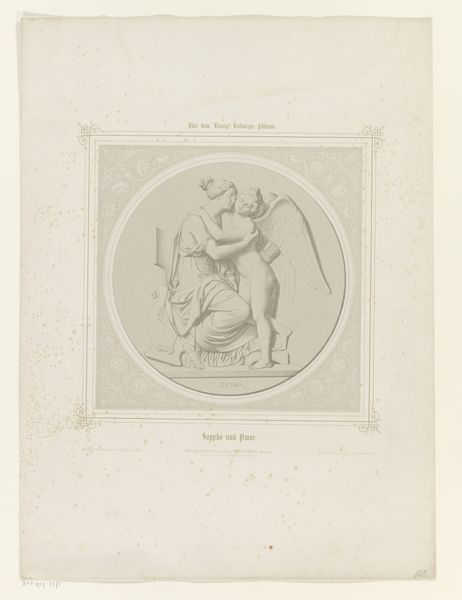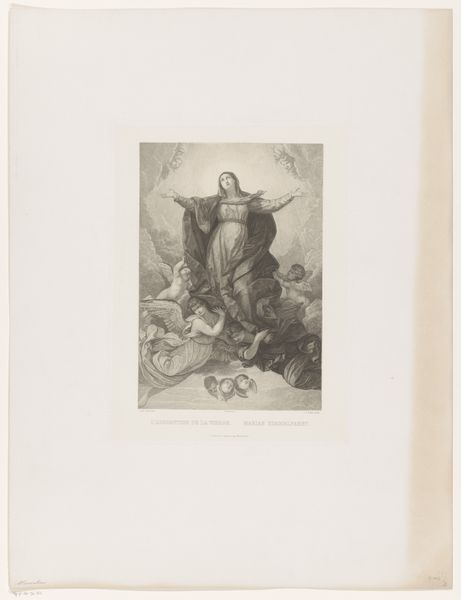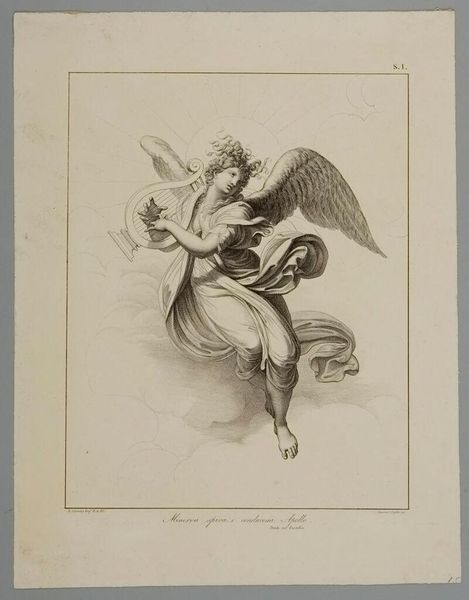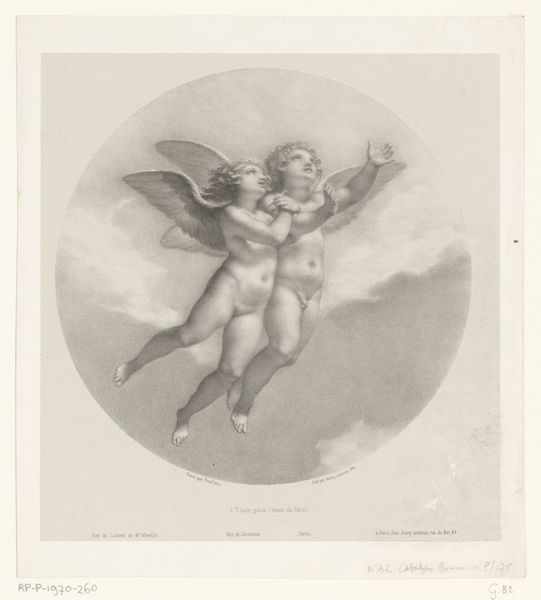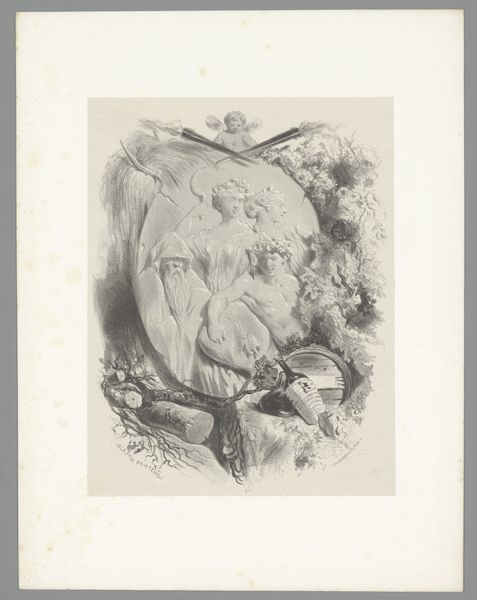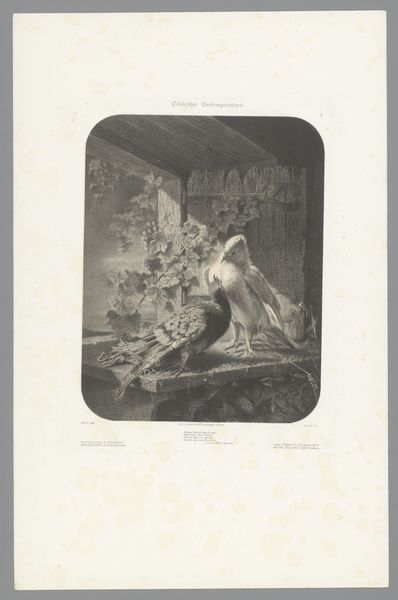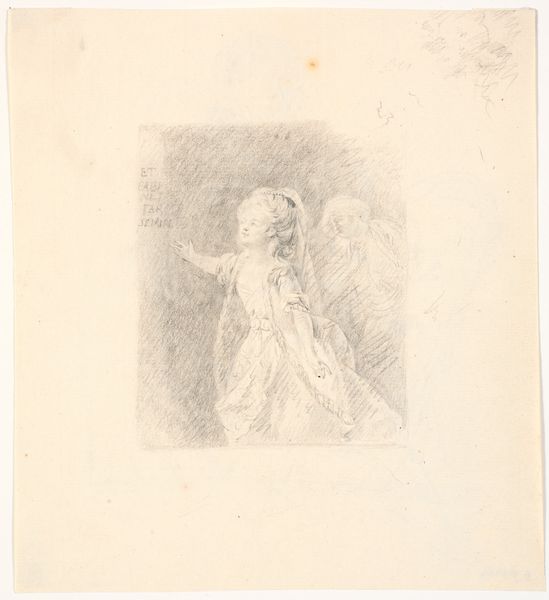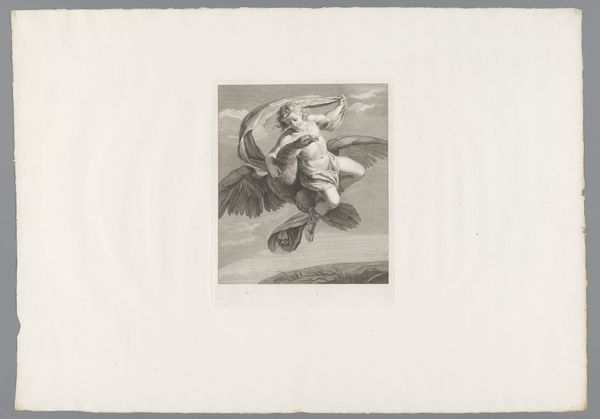
Engel zwevend boven een monument voor Victor Hugo, Alfred de Musset, Pierre-Jean de Béranger en Alphonse de Lamartine 1823 - 1873
0:00
0:00
drawing, pencil
#
portrait
#
drawing
#
allegory
#
figuration
#
romanticism
#
pencil
#
line
Dimensions: height 360 mm, width 277 mm
Copyright: Rijks Museum: Open Domain
Célestin Nanteuil made this print, of an angel hovering over a monument, using lithography. Lithography is a planographic printing process, meaning the artist draws on a flat stone or metal plate with a greasy crayon, then treats the surface so that ink adheres only to the drawn areas. Its appeal, back in the 19th century, lay in its relative ease and capacity for reproducing tonal variations, and in the high numbers of prints that could be pulled from a single stone. Here, the angel, rendered in shades of gray, seems to emerge from the stone itself, a testament to the lithographer's skill. Look closely, and you can almost see the individual strokes of the crayon, giving the image a soft, almost dreamlike quality. This wasn't high art; it was a commercial medium, used for everything from posters to book illustrations. But the artists who mastered it could achieve effects of great beauty and subtlety, like the one you see here. This print reminds us that even within mass production, there is a place for individual artistry and expression.
Comments
No comments
Be the first to comment and join the conversation on the ultimate creative platform.
